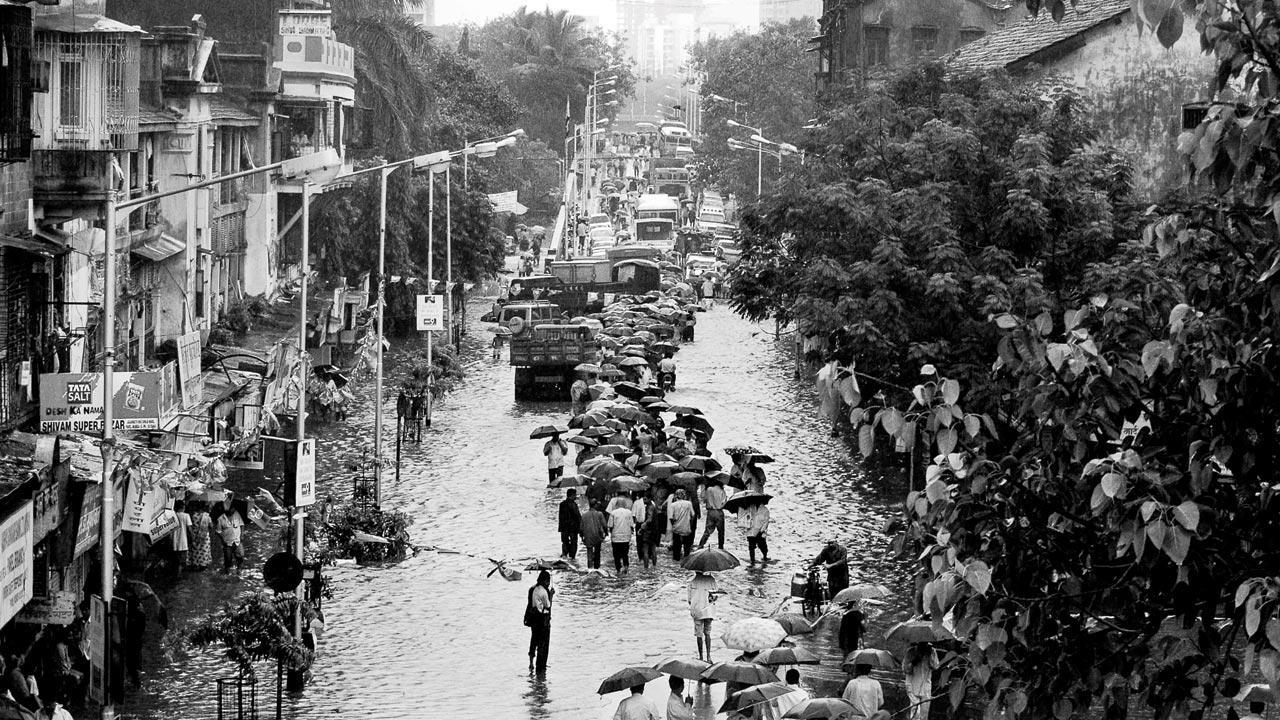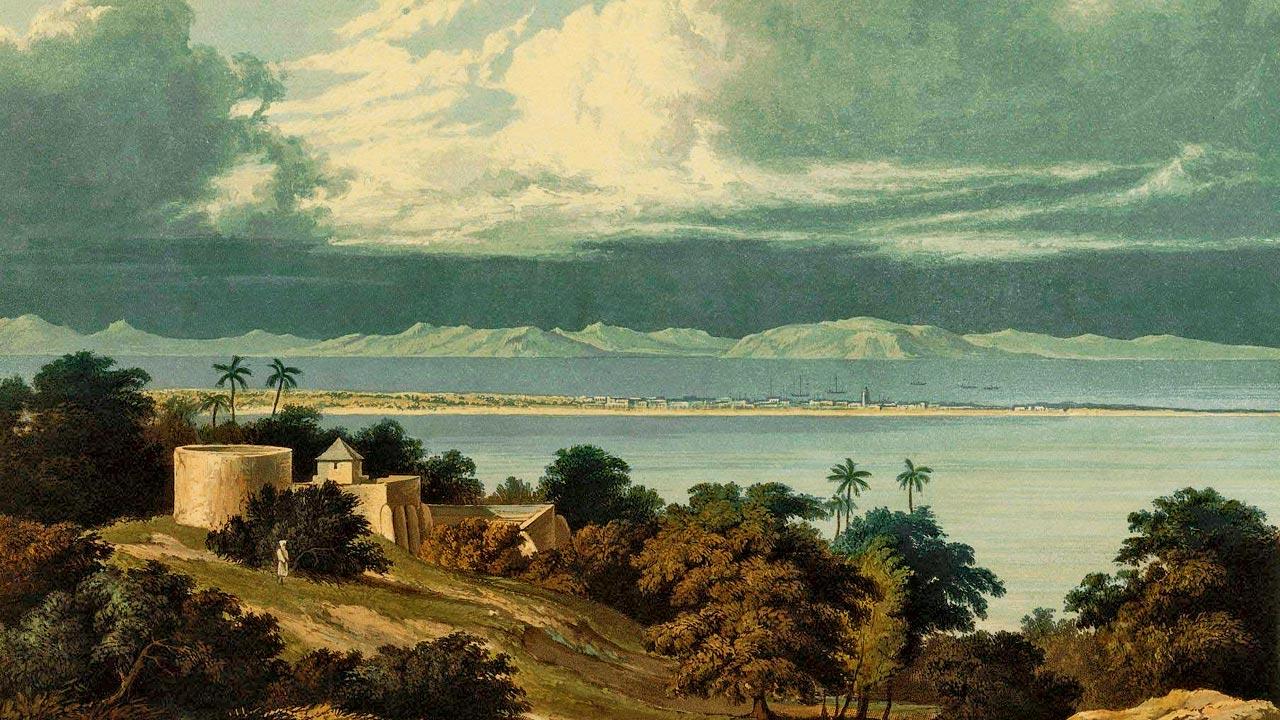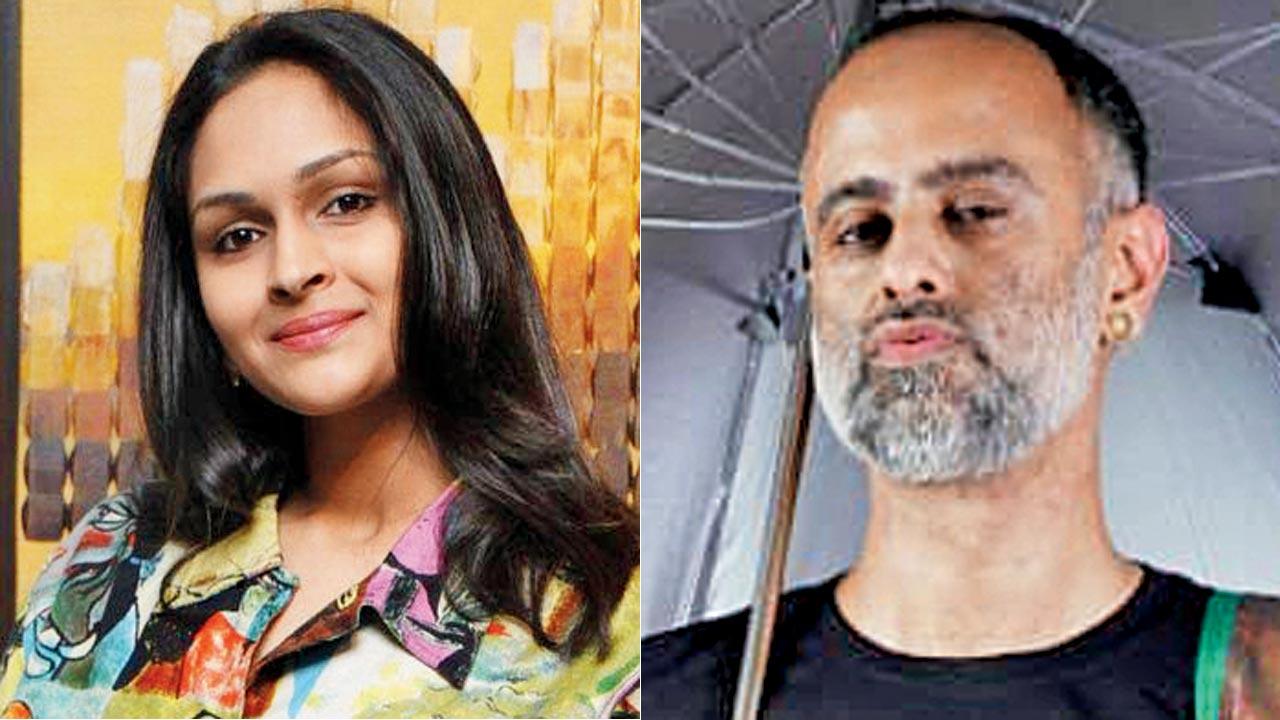A monsoon art festival brings back memories of Mumbai’s famed rains in all its multi-hued glory

Maximum Monsoon by Sudharak Olwe. Pics Courtesy/Tao Art Gallery
Even as the October sun shines through the roofs of Mumbai’s cityscapes, the memories of its monsoon are only just retreating. The occasional wet patches on roads and suddenly puddle-less potholes carry reminders of the season past. This nostalgia, in all its chaos and vibrancy, will also be on show at the 17th edition of the month-long Monsoon Festival at Worli’s Tao Art Gallery.
ADVERTISEMENT
Curated by Himanshu Verma, Red Earth, the festival, which opened on October 8, is an amalgamation of different artists giving voice to their experience of the city’s monsoon through various mediums. Having travelled through Delhi and Jaipur, Verma describes the season’s relationship with the city as unique. “Mumbai’s monsoon culture is so special. The matrix of the experience in Mumbai is different from what you see anywhere else,” he says. Verma started the festival back in 2006, in an effort to look at how seasons and festivals in India have inspired creativity across genres. He explains, “Through examples like Raag Malhar in music or Indian literature in the classical period or dance, we see that the act of responding to the season is a very important part of expression. But in contemporary art, most artists don’t have the urge to talk about this element. The idea was to rekindle that urge.”
 Vintage print titled View from Malabar Hill - 1826; India Visual Archive
Vintage print titled View from Malabar Hill - 1826; India Visual Archive
That urge will find expression through mediums of poetry, sculpture, installations, visual art, photographs and prints at the gallery this month. Sanjana Shah, creative director of the gallery, shares, “The monsoon is a multi-faceted experience that having multiple mediums was perhaps the right way to do justice to it.” She adds that the show, while not romanticising the monsoon, pays a tribute to it. “It is a complex relationship that really comes through in some of the photographs that show the visarjan and the pollution, the after-effects of the rain and its damage. It is necessary.”
This experiential nature of the exhibit will be enhanced by a poetry-reading session by Ranjit Hoskote on October 15. Verma says that it was inevitable to bring in the medium of poetry. “To me, Mumbai has been the city of poetry, quite literally.” Shah quickly points that experience is at the heart of contemporary art. “Art is a large umbrella term. Rather than putting them into silos of fine arts or painting or a particular medium as art, it should be any medium and all forms of creative expression.”
 Sanjana Shah and Himanshu Verma
Sanjana Shah and Himanshu Verma
Verma’s curation delves deeper than the visual aesthetics of the monsoon in Mumbai’s cityscape. The works explore multiple sub-themes from landscapes to objects and material culture to the dark side of the monsoon. “When I started my research on the project as a theme, there was nothing on monsoon apart from newspaper clippings and personal accounts. Nobody has put together all of the elements — artistically or academically,” Verma describes, adding that the exhibits are “undocumented and lived” experiences.
Among them is Anjana Mehra’s depiction of the material culture of the city in the monsoon. Both Verma and Shah seem drawn to it. Shah says, “There is that beauty that comes through, but it also has an unfinished vibe. It is a tumultuous relationship between nature and its forces and man trying to build and create.” Another interesting exhibit is Prajakta Palav’s intricate interpretations of the monsoon.
The festival might evolve into a different element altogether over the years, Verma says “It will continue to evolve and lead to deeper research.” For now, it will be hosted by a city slowly moving into a new season.
TILL October 23; 11 am to 7 pm
AT Tao Art Gallery, The View, Dr Annie Besant Road, Worli.
LOG ON TO taoartgallery.com
FREE
 Subscribe today by clicking the link and stay updated with the latest news!" Click here!
Subscribe today by clicking the link and stay updated with the latest news!" Click here!







